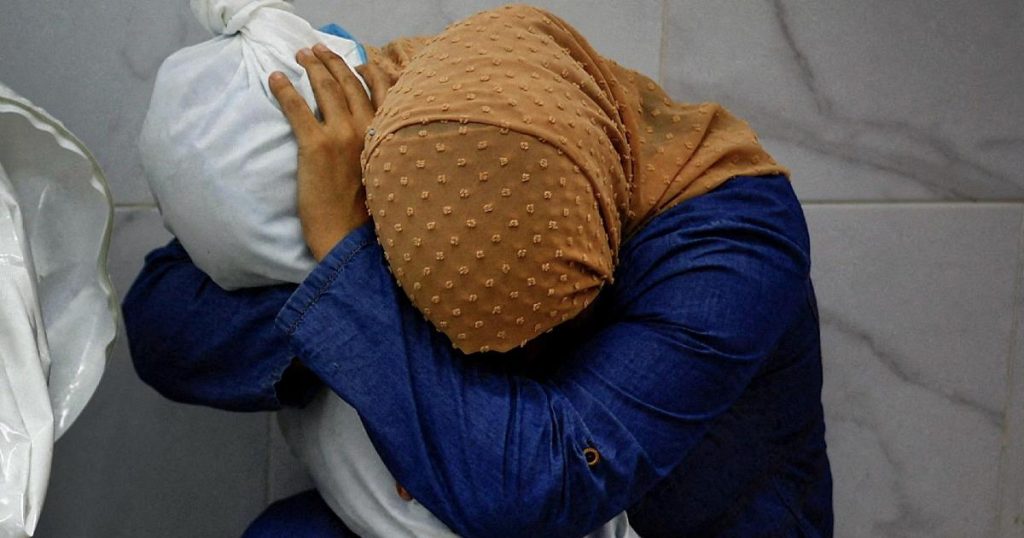The photo of Reuters reporter Mohammed Salem showing Inas Abu Maamar cradling the body of her five-year-old niece, Saly, who died along with her mother and sister when an Israeli missile struck their home in Khan Younis in October, has won the 2024 edition of the World Press Photo. The photo was taken 10 days after the beginning of the conflict. Fiona Shields, head of photography at The Guardian and president of the international jury, described the image as deeply moving and powerful, serving as a poignant and metaphorical message about the horror and futility of conflict, and advocating strongly for peace.
South African photographer Lee-Ann Olwage, for GEO magazine, won the award for “Story of the Year” with her intimate portrait of a family in Madagascar living with an elderly parent suffering from dementia. The judges praised the story for addressing a universal health issue through the lens of family and caregiving. The award for “Long-Term Project” went to Venezuelan Alejandro Cegarra for his series titled “The Two Walls,” a project started in 2018 where the photographer draws from his own direct experience to depict the struggles of migrants crossing Mexico on their way to North America.
The award for the “Open Format” category was given to Julia Kochetova for her website that combines photojournalism with documentary and diary-style storytelling to showcase the realities of living in war, specifically the conflict between Russia and Ukraine, as a daily reality. The winning images were selected from 61,062 submissions by 3,851 photographers from 130 countries. The global winners were chosen from 24 projects that won regional awards.
The powerful and emotive images highlighted by the World Press Photo awards served as a compelling reminder of the human impact of conflict and crisis around the world. The winning photograph captured a moment of profound sadness and tragedy, resonating with viewers and conveying a strong message about the senselessness of violence. The winning projects in various categories shed light on important issues such as healthcare, migration, and the complexities of daily life in conflict zones, offering a platform for visual storytelling that promotes understanding and empathy.
Overall, the World Press Photo 2024 winners demonstrated the power of photography as a tool for communication, activism, and storytelling. Through their compelling images and projects, the photographers showcased the resilience of individuals facing adversity, the universality of human experiences, and the urgent need for compassion and peace in a world marked by conflict and division. As the global community continues to grapple with challenges and crises, the role of visual journalism in raising awareness and sparking dialogue remains crucial in fostering a more empathetic and united world.















